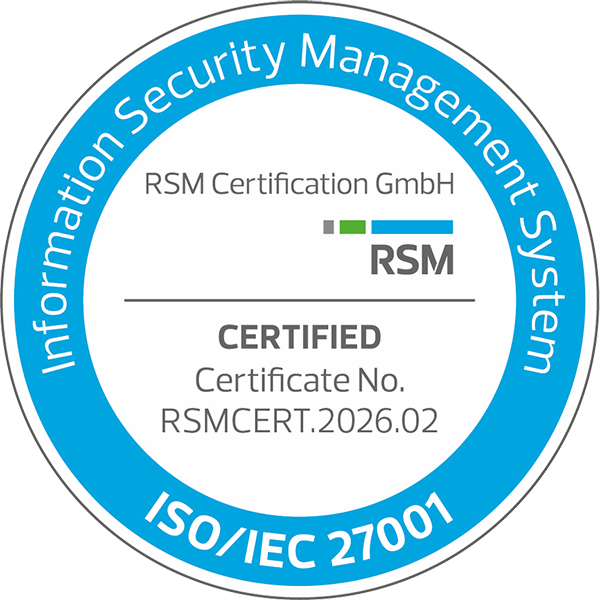Organizations that meet this norm demonstrate their commitment to high-quality standards and continuous improvement of their processes. In this glossary entry, we explain what ISO 9001 is, why it matters to businesses, and how it relates to archiving and enterprise content management (ECM) software.
What is ISO 9001?
ISO 9001 is the globally recognized standard for quality management systems (QMS). Organizations that meet this norm demonstrate their commitment to high-quality standards and continuous improvement of their processes. In this glossary entry, we explain what ISO 9001 is, why it matters to businesses, and how it relates to archiving and enterprise content management (ECM) software.
The core principles of ISO 9001
ISO 9001 is based on seven fundamental quality management principles:
- Customer satisfaction: meeting customer needs and expectations is the main focus.
- Leadership: effective leadership fosters the commitment of all employees and ensures clear objectives.
- Involvement of people: all employees must be involved in the quality process.
- Procedure-oriented approach: efficient management of procedures is crucial to quality assurance.
- Improvement: Continuous improvement is a central aspect of quality management.
- Evidence-based decision-making: Decisions should be based on the analysis of data and facts.
- Relationship management: Good relationships with suppliers and partners are crucial for long-term success.
Why is ISO 9001 important?
For companies, ISO 9001 not only provides a framework for quality assurance, but is also a valuable tool for increasing efficiency and transparency within the organization. By introducing an ISO 9001 quality management system, companies can:
- Optimize processes and minimize sources of error
- Increase customer satisfaction and build trust
- Reduce costs through efficient processes
- Gain a competitive edge with a recognized quality certificate
ISO 9001 and archiving: a strong combination
The implementation of ISO 9001 requires structured and comprehensible documentation. This is where archiving comes into play: an ECM system (Enterprise Content Management) helps companies to efficiently manage and archive documents and data, and to make them accessible for all relevant processes.
For successful quality management, all documented processes, test logs, quality reports and other relevant information must be properly stored and tracked. This can quickly become confusing when companies resort to manual archiving systems. A modern ECM system, on the other hand, offers a central platform for managing this data and ensures that all information is traceable and available at all times. This not only helps the company to remain ISO-compliant, but also saves time and resources.
Conclusion: ISO 9001 as the key to quality management and efficiency
ISO 9001 is not just a quality standard – it is a valuable basis for a company’s success. By continuously improving their processes and ensuring high quality standards, companies can not only strengthen their market position but also optimize their internal processes. The integration of ECM software for archiving and managing documents helps to efficiently meet all ISO 9001 requirements and ensure quality in all areas of the company.
Do you also want to certify your company according to ISO 9001 and take your documentation to the next level? Contact us – we will support you with modern ECM solutions that make your quality assurance even more effective!
FAQ on ISO 9001
Is this ISO standard mandatory?
In Germany, ISO 9001 is not legally mandatory. There is no regulation that requires companies to implement a certified quality management system according to ISO 9001. However, the ISO standard provides competitive advantages:
- When customers or clients require ISO certification and consider it a prerequisite for collaboration.
- Because ISO certification serves as proof of process reliability and quality.
How long is an ISO 9001 certificate valid?
An ISO 9001 certificate is generally valid for three years. But that’s only part of the story. Its validity depends on a continuous audit process.
- Initial certification and first audit by an accredited certification body
- Annual audits to verify actual compliance with ISO 9001
- Re-certification after three years
What is the current version of the ISO 9001 certification?
It is ISO 9001:2015. This version was published in September 2015 and remains the key foundation for quality management systems to this day. As of 2025, no updated version of the ISO certification is expected.

